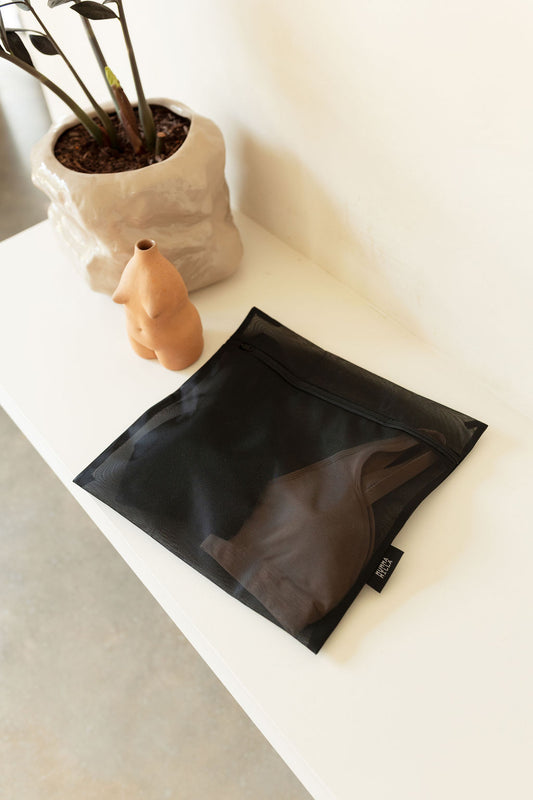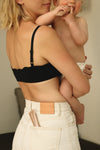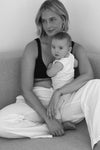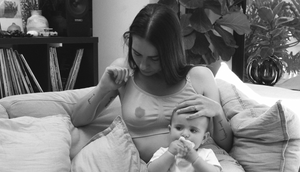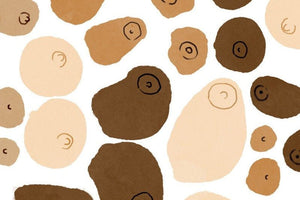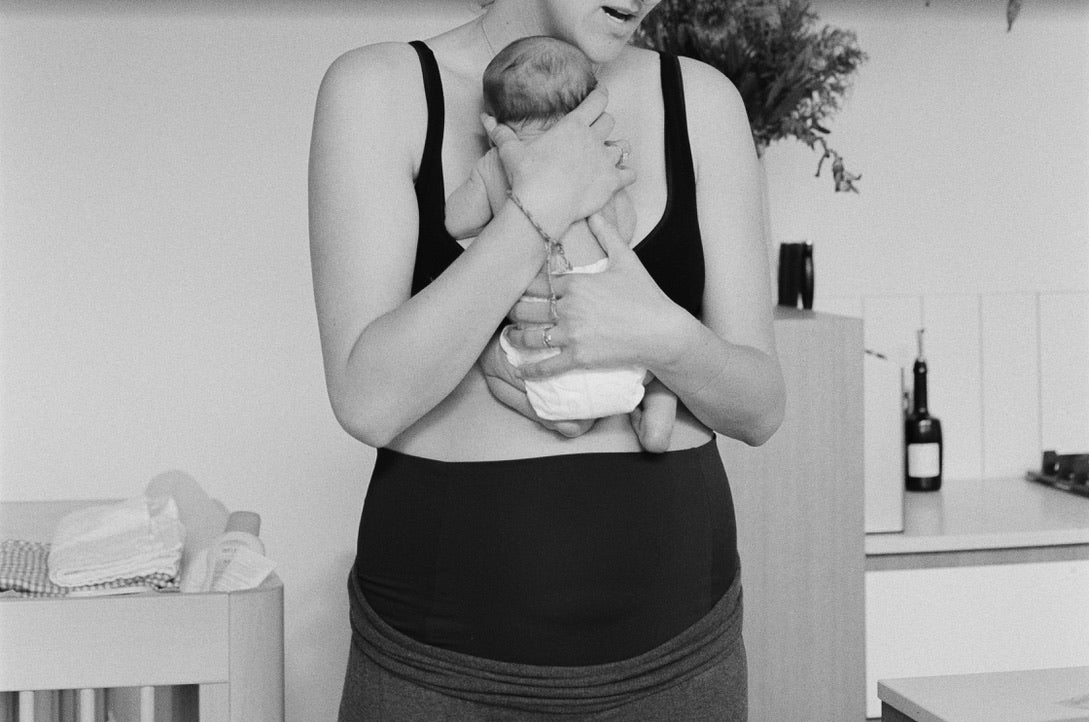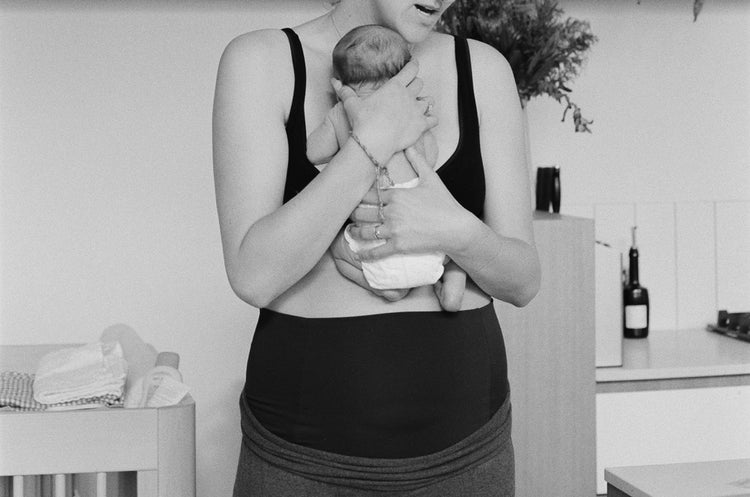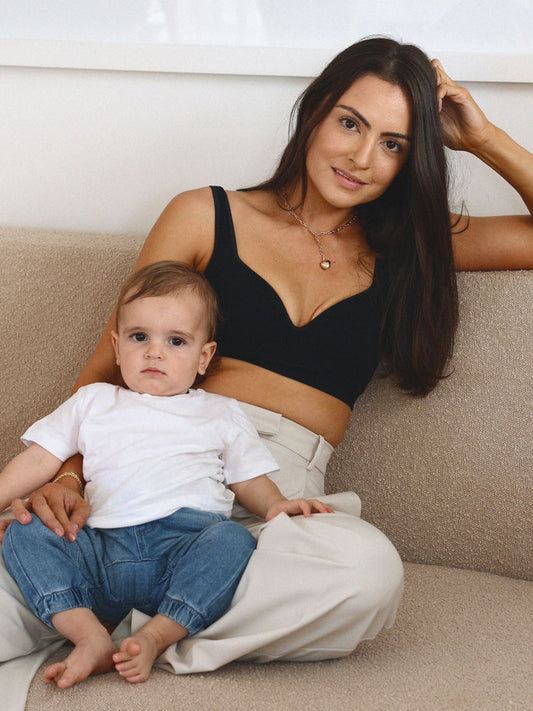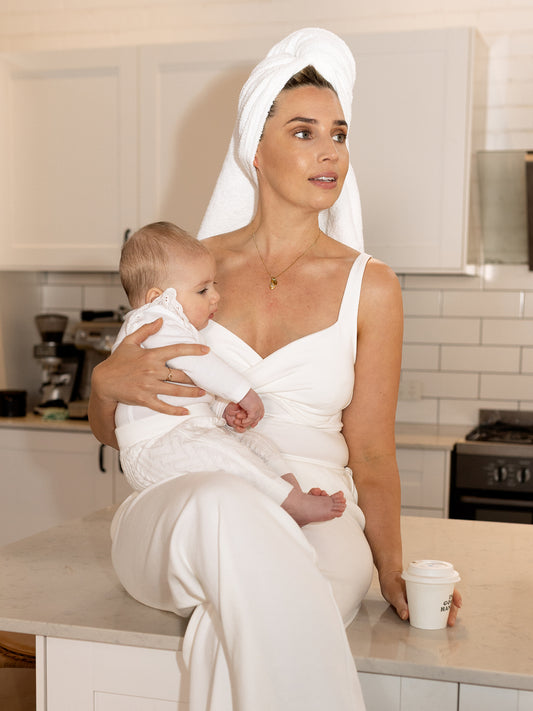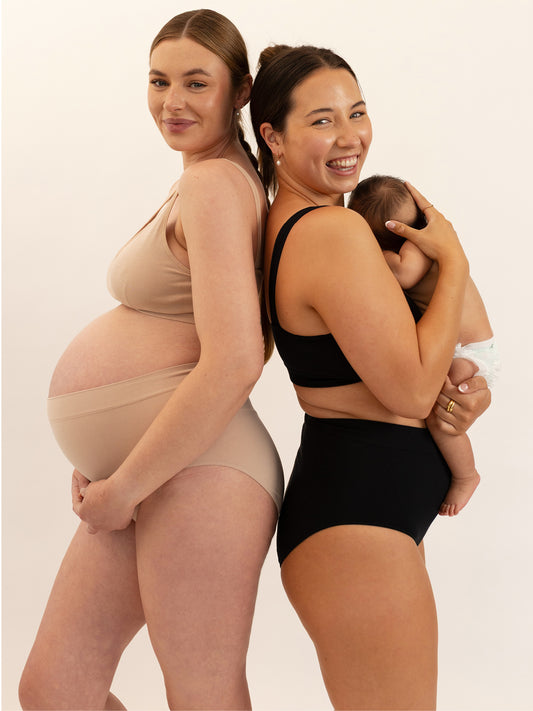Giving birth, particularly to your first child, is one of the biggest transitions you'll ever experience.
Along with some heightened hormones and emotions, looking after your brand new baby can be a lot, and even more so if you start to experience some post-birth symptoms you may not be aware of.
Here is a list of what you can expect and how to prepare.
#1 HORMONE SHIFTS
The birth of your baby is undoubtedly one of the most thrilling and shifting moments of your life. Thanks to the rush of hormones called endorphins you'll likely feel an incredible, indescribable high when you meet your baby for the first time or shortly after. Sadly, this hormone will plummet after a few days leaving you feeling fatigued and drained after that physical intensity.
Hormones in play post-birth:
Progesterone and estrogen: Both of these hormones decrease as soon as the baby and the placenta are delivered.
Oxytocin: Surges immediately following birth to compensate for the initial drops in progesterone and estrogen. This hormone is responsible for that strong parenting instinct.
Prolactin: Increases to encourage milk production.

#2 ABDOMINAL CRAMPS
After giving birth you may think all of your contractions are over.
However, this is not the case. Post-birth cramping is a common symptom as your uterus contracts down to its normal size. The cramps can be even more noticeable and begin every time your baby is breastfeeding. This is also particularly noticeable once a woman has had more than one baby. As your baby feeds you body produces the hormones to help shrink your uterus. Incredible!
#3 BLEEDING
After birth your body will continue to to discharge a mix of blood, mucus and uterine tissue, called 'lochia'. This commences right after birth. This tissue and blood from the uterus will be heavy and bright red to start and then become lighter in flow and colour. It will stop after a few weeks. Make sure to pack disposable pads in your hospital bag.
#4 POST-BIRTH HUNGER AND THIRST
Labouring can burn between 400 to 700 calories per hour so giving birth is likened to running a marathon. Your hunger will kick in after you've given birth, and it's important to hydrate as much as possible too for not only recovery, but for breastfeeding. You appetite will increase too once your start breastfeeding as your body requires the extra energy to produce your baby's milk.

#5 THE 'BABY BLUES'
It is normal to feel a rollercoaster of emotions after giving birth. There is often a dip in mood around day 3 or 4 after your baby arrives, also known as the ‘baby blues’. These feelings are very common and can be due to changes in hormone levels, breastfeeding, lack of sleep and fatigue.
#6 BOWEL MOTION AND URINATION
Your first bowel movement may be a few days after delivery. Going to the toilet can be painful due to some birth additions like haemorrhoids, sore muscles, tears or an episiotomy. Constipation is also expected during your post-birth days. Hydrating and making sure to eat fresh fruits and veggies are important.
Interestingly the muscles in your urinary tract are stretched after giving birth too. You may find some incontinence when you cough, laugh or strain, especially if there was a lengthy labour.

#7 BE EASY ON YOURSELF
You've achieved something incredible, birthing your baby! Remember to take it day-by-day and look after yourself: recover, relax and rest as much as possible.
If you would like a Postpartum Doula's tips on how to prepare your home and a recovery plan read Alice's tips from Village for me here.
Do you need to stock up on some comfortable maternity bras for your Hospital Bag?
See the Leakproof Collection here.
All images by Caramand Photography featuring Alice from Village For Me.


